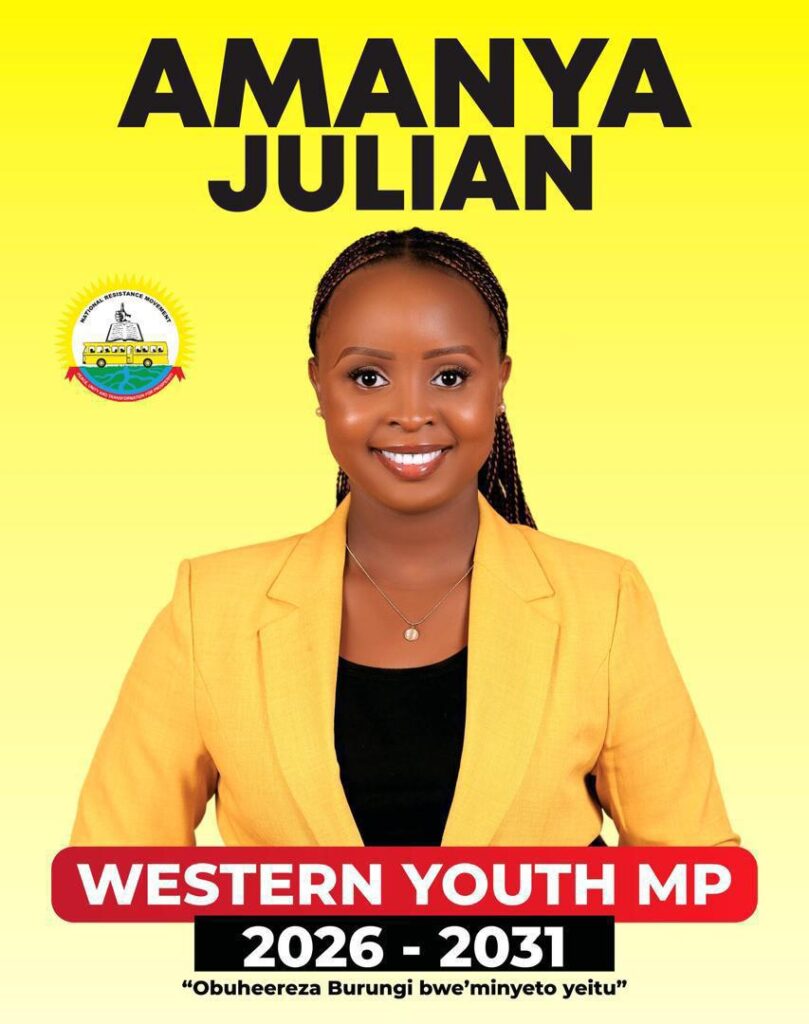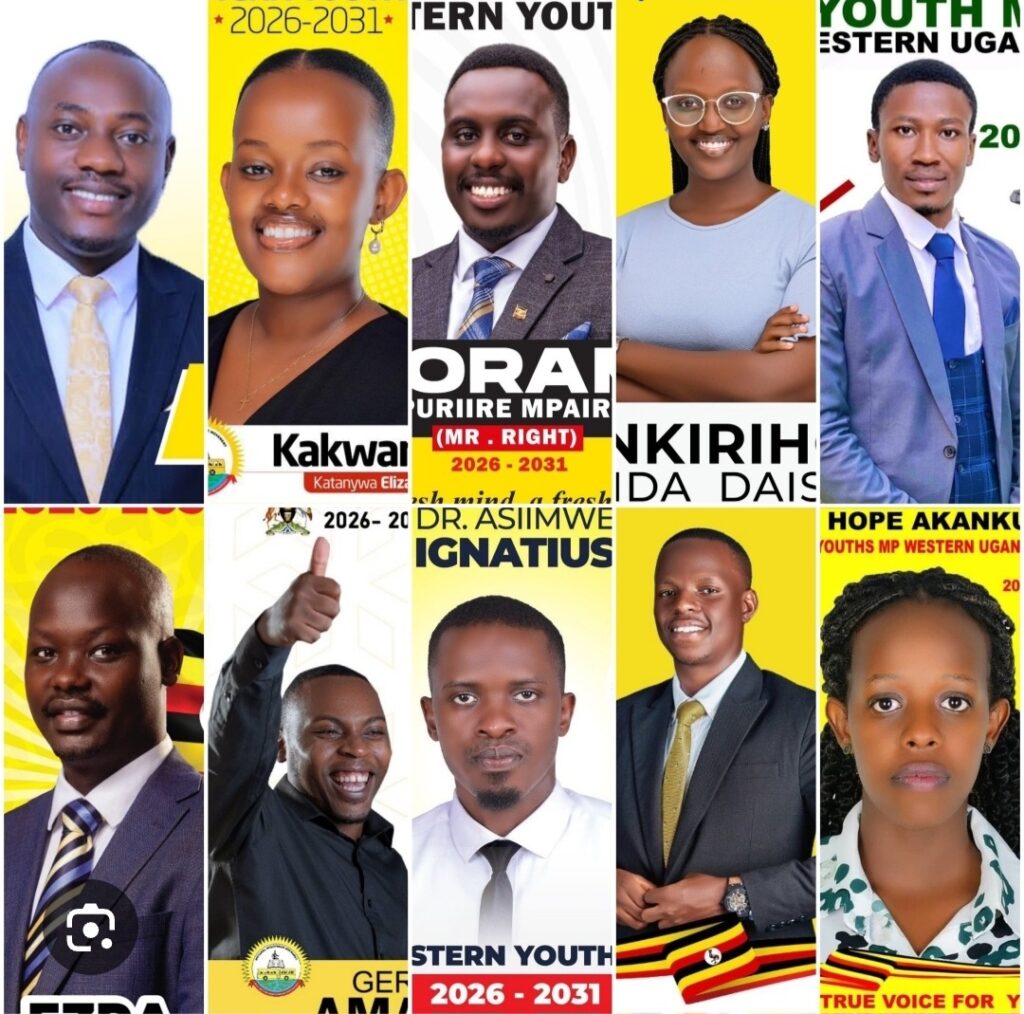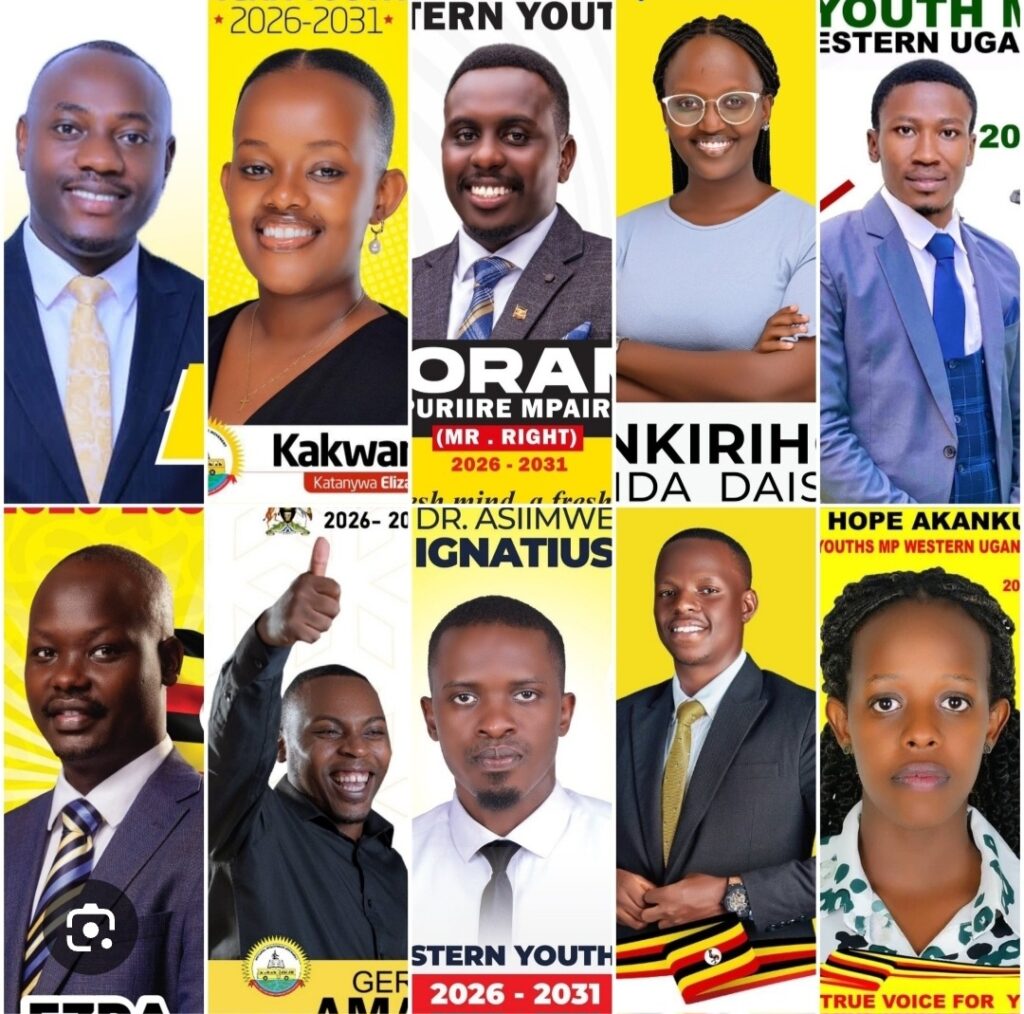
By Atwemereireho Alex
alexatweme@gmail.com, August 29, 2025
As the contest for the Western Youth Member of Parliament (MP) seat gains momentum, Uganda once again finds itself at the crossroads of two competing traditions in politics: the lure of money, inheritance, and patronage on one hand, and the enduring call for merit, ideas, and genuine representation on the other. This race has attracted ambitious young leaders eager to project themselves as the true voice of Uganda’s youth.
Yet beneath the slogans, endorsements, and grand campaign gestures, one critical question looms: Who among them embodies not just the ambition to lead but the integrity, ideas, and vision to redefine youth representation?
The Familiar Faces of Continuity and Contest.
In Daisy Arinda Kankiriho, Uganda sees the familiar story of political inheritance. As daughter of the late Brig. Patrick Kankiriho and former Guild President of Mbarara University of Science and Technology, Daisy commands both visibility and pedigree. Her campaign leans heavily on loyalty, legacy, and continuity, strengths that resonate with some but also reignite concerns about whether youth representation has become the preserve of the well-connected rather than an arena for equal opportunity.
Elizabeth Kakwanzi Katanywa enters the race with undeniable charisma and a daring streak that has energized parts of the youth electorate.
For her supporters, she represents bold disruption; for her critics, she embodies volatility. The excitement surrounding her candidacy is real, but so are the questions about whether passion alone can translate into the discipline and foresight required of a legislator.
Then comes Tumwebaze Mwiine, a son of Mbarara City tycoon John Mwiine, whose campaign has been marked by extraordinary financial muscle. Backed by wealth and networks, his candidacy has sparked unease over the creeping commercialization of politics.

Allegations, though unverified of hefty inducements to delegates, remind Uganda of a deeper problem: when money dictates politics, ideas risk becoming secondary, and representation risks being compromised.
The Contrast of Substance: Julian Amanya.
Against this backdrop of inheritance, controversy, and money, the candidacy of Julian Amanya emerges as a refreshing and compelling alternative.
A graduate of Kyambogo University with a degree in arts and social sciences, Amanya brings no inherited political dynasty, no tycoon’s bankroll, and no patronage debts. What she carries instead is a vision rooted in lived experience and an authenticity that resonates with the frustrations and aspirations of ordinary Ugandan youth.
Her story is one of resilience. Having grown up in circumstances that mirrored the daily struggles of many young Ugandans, Amanya embodies the grit and determination that form the true character of her generation.
She is not a product of privilege but of perseverance, and it is from this vantage point that her ideas acquire both relevance and credibility.
Unlike campaigns built on personality, Amanya’s is anchored on substance. Her manifesto speaks directly to the structural challenges facing Uganda’s youth. She envisions a revitalization of technical and vocational institutions, a bold yet practical approach to curbing youth unemployment by equipping the next generation with marketable skills.
She champions digital literacy and computer science as non-negotiables for survival in the modern economy while also pushing for the modernization of agriculture, the bedrock of Western Uganda’s livelihoods.
What sets Amanya apart is not merely the content of her proposals but the clarity and conviction with which she articulates them. For her, empowerment is not a political buzzword. It is a necessity born out of lived struggle. Her campaign is free of the entanglements of wealth or dynasty; her accountability lies with the youth alone.
This makes her uniquely positioned to legislate with independence, integrity, and authenticity.
More Than a Contest of Candidates.
The stakes of this election go beyond the ambitions of the candidates. Article 1(4) of the 1995 Constitution of Uganda vests power in the people through free and fair elections. To reduce this process to mere inheritance or inducement is to betray not only the Constitution but also the spirit of representative democracy.
The Western Youth MP race is not just another political contest; it is a referendum on the kind of leadership Uganda’s youth will endorse.
Delegates stand at a profound crossroads. They can choose to perpetuate the politics of privilege, wealth, and short-term inducements, or they can endorse leadership grounded in integrity, substance, and vision.
The choice is not trivial; it will shape not only the fortunes of one constituency but also the trajectory of youth representation in Uganda’s Parliament.
Why Amanya’s Candidacy Matters.
In this crowded field, each candidate brings something to the table, whether establishment loyalty, disruptive charisma, or financial resources. Yet the test of history will not ask who had the loudest campaign or the deepest pockets. It will ask: Who had the courage and imagination to reimagine youth representation?
That courage, authenticity, and intellectual clarity shine most visibly in Julian Amanya. Her candidacy offers not just an option but an opportunity for delegates to rise above patronage, beyond money, and choose a leader who mirrors their reality while also charting a pathway to transformation.
By endorsing Amanya, delegates will not simply be choosing a candidate. They will be choosing a vision anchored in integrity, grounded in lived experience, and committed to the collective good of Uganda’s youth.
It is a decision that demands not just political calculation but moral foresight, a recognition that the future of youth representation should be built on ideas, not inducements; on integrity, not inheritance.
The choice lies with the delegates. History will remember not only who stood but also who stood for the right reasons.
The writer is a lawyer, researcher, and governance analyst.
